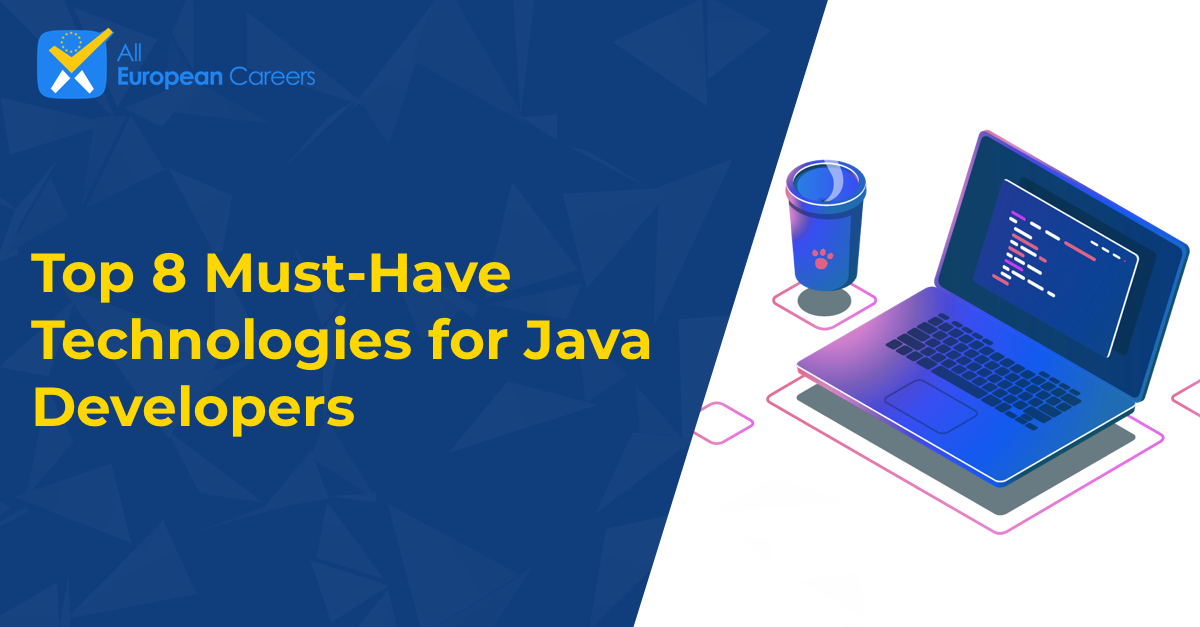As technology rapidly evolves, Java developers need to stay ahead of the game to remain competitive in the dynamic world of software development. Embracing new tools and frameworks can significantly enhance productivity and the overall development process. In this blog post, we’ll explore the top eight technologies that every Java developer should be familiar with to excel in their craft.
Spring Framework:
The Spring Framework is an essential technology in the Java ecosystem. It simplifies the development of robust and scalable applications by providing features such as dependency injection, aspect-oriented programming, and integration with various other frameworks. With Spring Boot, developers can quickly set up projects and focus on building business logic rather than worrying about configuration details.
JavaFX:
JavaFX is a modern and versatile framework for building user interfaces (UI) in Java applications. It offers a rich set of components, graphics, and multimedia capabilities, making it ideal for creating visually appealing desktop and mobile applications. JavaFX’s integration with Java makes it a go-to choice for developers looking to build cross-platform applications with seamless user experiences.
Apache Maven:
Apache Maven is a powerful build automation and project management tool that simplifies the build process for Java projects. It manages project dependencies, compiles source code, and packages applications efficiently. By using Maven, developers can focus on writing code, while the tool takes care of tedious tasks like project configuration and dependency resolution.
Docker:
Docker has revolutionized software development and deployment with its containerization approach. Java developers can use Docker to package their applications, along with all the necessary dependencies, into lightweight containers. This ensures consistency between development and production environments, making deployment hassle-free and minimizing compatibility issues.
Reactive Programming with Reactor:
Reactive programming is gaining popularity due to its ability to handle asynchronous data streams effectively. Reactor is a reactive library for Java that provides a simple yet powerful API for building responsive and scalable applications. Java developers can use Reactor to handle events, data streams, and concurrency with ease, making it ideal for modern, data-driven applications.
Kubernetes:
In the era of cloud-native applications, Kubernetes has emerged as the de facto standard for container orchestration. Java developers can leverage Kubernetes to automate deployment, scaling, and management of containerized applications. By mastering Kubernetes, developers can ensure their Java applications run efficiently and reliably in any cloud environment.
Quarkus:
Quarkus is a Kubernetes-native Java framework that is optimized for serverless and cloud-native deployments. It offers fast startup times and low memory footprint, making it an excellent choice for microservices and serverless architectures. Java developers looking to build lightweight, high-performance applications should consider exploring Quarkus.
Micronaut:
Micronaut is another modern JVM-based framework designed for building microservices and serverless applications. It features compile-time dependency injection, minimal memory usage, and fast startup times, similar to Quarkus. Micronaut’s efficiency and cloud-native support make it an attractive technology for Java developers seeking high-performance solutions.
In conclusion, staying up-to-date with the latest technologies is crucial for Java developers to succeed in the competitive world of software development. The technologies mentioned above, including Spring Framework, JavaFX, Docker, and Kubernetes, can significantly boost a developer’s productivity and allow them to build robust, efficient, and scalable applications. As technology continues to evolve, continuously exploring and mastering new tools will be essential for the success of Java developers in the years to come.

More Blogs
Exploring the Best Software Technologies to Master in 2024
Efficient Strategies for Managing Software Workload During the Holiday Season
10 Tips for Java Developers to Get a Head Start in 2024
The Importance of Hiring a Native Mobile App Developer for Your Business
Why Companies Are Seeking These Multifaceted Tech Experts